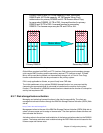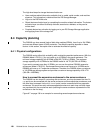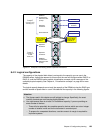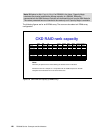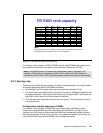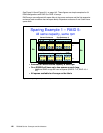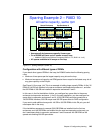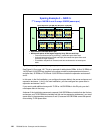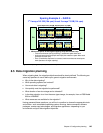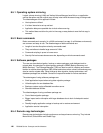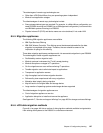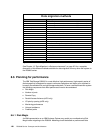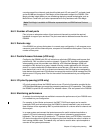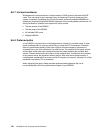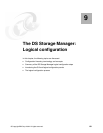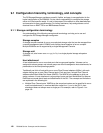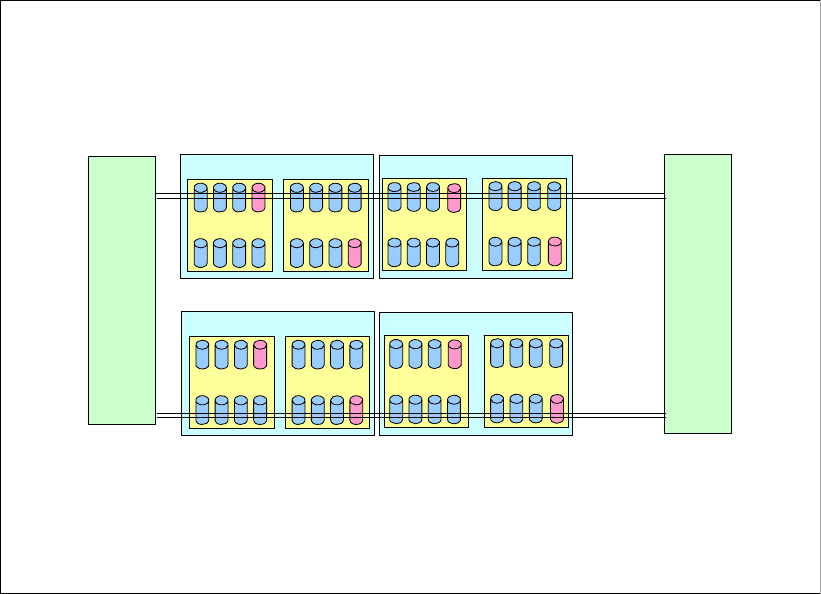
Chapter 8. Configuration planning 145
Figure 8-13 Sparing example 4 (add faster DDMs)
8.5 Data migration planning
When migrating data, the migration objectives should be clearly defined. The following are
some key questions to use to define your generic migration environment:
Why is the data migrating?
What operating systems are involved?
How much data is migrating?
How quickly must the migration be performed?
What duration of service outage can be tolerated?
Is the data migration to or from the same type storage, for example, from an ESS Model
800 to a DS6000?
What resources are available for the migration?
Having answered these questions, you will be in a position to choose the appropriate tools
and utilities—such as standard operating system mirroring, basic commands, software
packages, remote copy technologies, and migration appliances—depending on your
environment and your data migration objectives.
Sparing Example 4 – RAID 5:
1
st
2 arrays 145 GB (10k rpm) & next 2 arrays 73 GB (15k rpm)
• Minimum 2 spares of the largest capacity Array Site on each loop
– First two enclosures (server and Exp 1) needs two spare disks each
– And next two enclosures (Exp2 and Exp3) also need two spare disks each
(because of faster rpm)
– Even if installation sequence is reversed, next two enclosures need spare
disks (because of larger capacity)
DA
DA
1
6 + P
6 + P
2
6 + P
6 + P
…
Server Enclosure (146 GB)
1
6 + P
6 + P
2
6 + P
6 + P
…
Exp Enclosure 1 (146GB)
Exp Enclosure 3 (73 GB)
Exp Enclosure 2 (73 GB)
1
1
2
2



